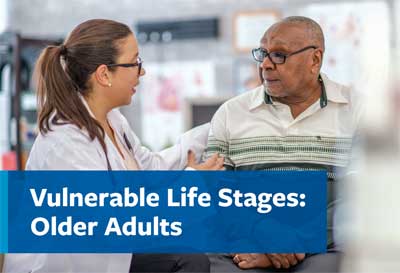Improving the Health and Care of an Aging Population

Adults aged 65 years or older will soon comprise 20% of the US population, accounting for nearly one-third of the more than $3 trillion spent on healthcare in the US annually. This demographic transition is driving changes in health needs, systems of care, and the resources required to provide that care. The major challenge we face is to improve the health and care of our older population while reducing the costs of providing that care.
GROUND-BREAKING RESEARCH
The School of Public Health is poised to have a major impact on the care of older adults. Its Center for Gerontology and Healthcare Research is nationally and internationally renowned for its ground-breaking research in health services, aging, and chronic disease. The School’s capacity for impact in this area is magnified as it engages future generations of researchers and policy leaders, as well as the greater health care community.
